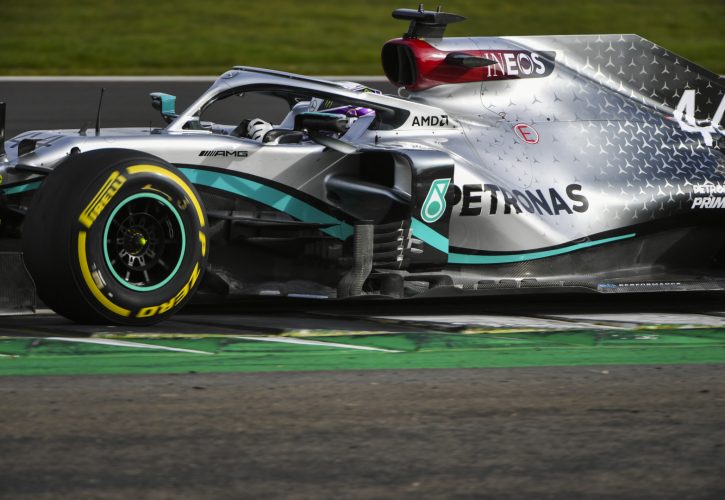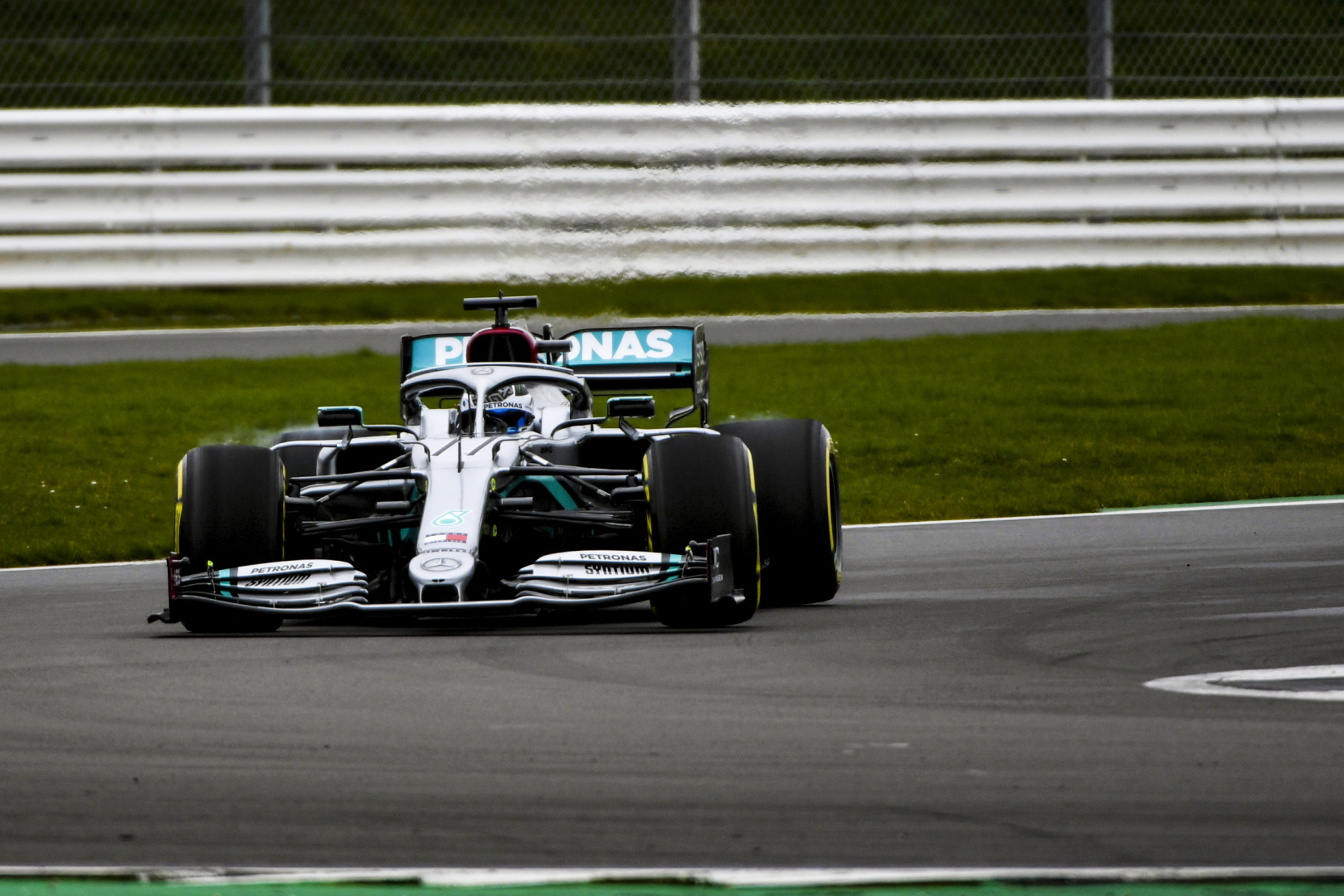
Mercedes says that it has targeted engine cooling issues with the design of this year's 2020 chassis, after the team experiences problems in that area with last year's title-winning car.
The W10's limited radiator capacity left Mercedes vulnerable at hot venues, such as the Red Bull Ring in Austria, where the engine power had to be turned down to prevent overheating and reliability problems.
But Mercedes technical director James Allison said that they had comprehensively addressed this area in the design of the W11, which was unveiled to the media on Friday.
"We've improved the cooling package," Allison explained. "We've created more face area, so there's more actual radiator area in the car.
"It's a difficult thing to do mid-season without incurring quite a lot of penalty," he continued. "But between seasons you can do it and it won't cost you, except a little bit of weight."
Allison added that the car would also benefit from significant work on the engine itself, developed by Mercedes-AMG High Performance Powertrains (HPP).
"They've worked to raise the operating temperature of the engine, which eases the cooling burden on us because the hotter the fluid, the less radiator you need to cool it."
"At the beginning of last year, the cooling capacity of our car was insufficient, which resulted in some challenging races," picked up Andy Cowell, the managing director of HPP.
He said that work to improve the cooling capacity had started early in 2019, after the first two races had exposed the problem on the W10.
"When it became clear we didn't have enough cooling capacity, we started working on proving out the power unit at higher temperature limits," he said. "We have had to develop an even wider area of the power unit, and we have looked at every single system.
"We have worked on a huge array of projects, and when summed together they will hopefully help propel the car around the track quicker and give the aerodynamics team more opportunities to improve as well."
"By Austria we had managed to prove out an extra four degrees on the water temperature which helped make the Spielberg race slightly more bearable. But it was still a very painful weekend for the team.
"This year we're putting significant effort into making sure that all the cooling fluids on the power unit operate at a higher temperature," he continued.

©Mercedes
"That's a tough challenge though," he admitted. "Large parts of the engine are made from aluminium, and the temperatures that we are operating at mean the material properties are decaying quite rapidly.
"Managing that over an eight-race distance power unit cycle is a tough engineering challenge. But that's what we are striving for."
Despite the team's cooling concerns last year, Lewis Hamilton was the only person on the grid to complete every single race in the points - a significant factor in the successful defence of the driver and team championships.
Cowell said that Mercedes was "pleased and proud" with that achievement, but admitted that failures on other power units - particular in customer cars using the Mercedes engine - had left him "saddened".
"We are concentrating on understanding the reasons, the quality issues that we encountered," he said. "We're working hard to make sure we have got robust containment in place based on the root cause of those issues."
The longer season this year means that reliability is at the forefront of HPP's approach.
"There is an increase in the number of cycles that all the hardware needs to do in 2020, putting an even bigger emphasise on reliability."
Gallery: The beautiful wives and girlfriends of F1 drivers
Keep up to date with all the F1 news via Facebook and Twitter






